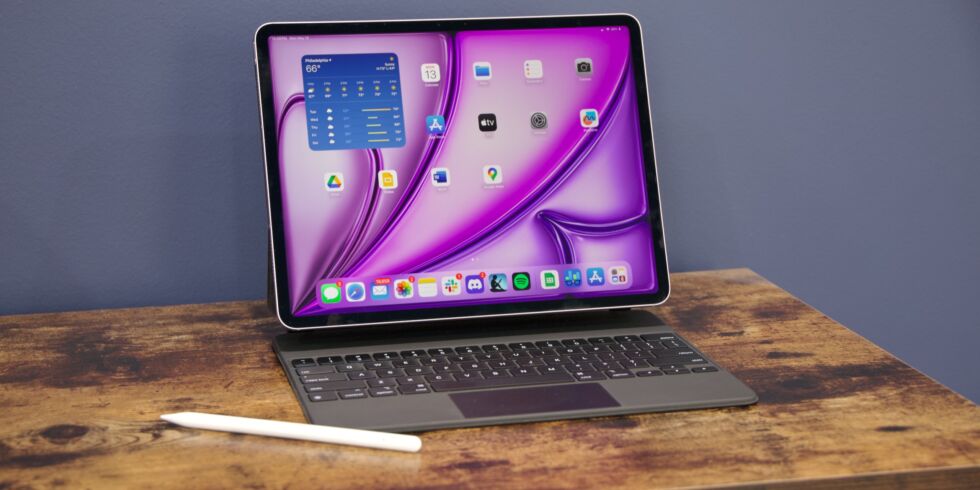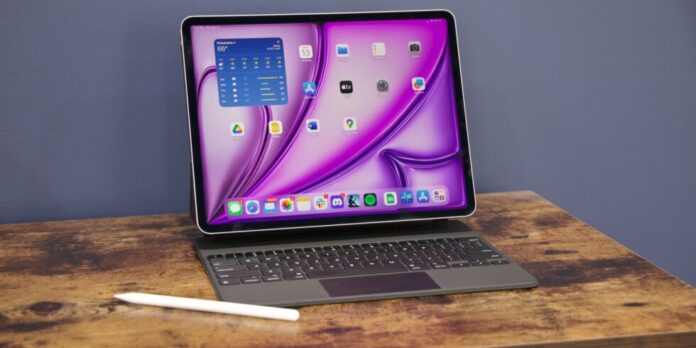-

The new 13-inch iPad Air with the Apple M2 processor inside. [credit: Andrew Cunningham ]
The iPad Air has been a lot of things in the last decade-plus. In 2013 and 2014, the first iPad Airs were just The iPad, and the “Air” label simply denoted how much lighter and more streamlined they were than the initial 2010 iPad and 2011’s long-lived iPad 2. After that, the iPad Air 2 survived for years as an entry-level model, as Apple focused on introducing and building out the iPad Pro.
The Air disappeared for a while after that, but it returned in 2019 as an in-betweener model to bridge the gap between the $329 iPad (no longer called “Air,” despite reusing the first-gen Air design) and more-expensive and increasingly powerful iPad Pros. It definitely made sense to have a hardware offering to span the gap between the basic no-frills iPad and the iPad Pro, but pricing and specs could make things complicated. The main issue for the last couple of years has been the base Air's 64GB of storage—scanty enough that memory swapping doesn't even work on it— and the fact that stepping up to 256GB brought the Air too close to the price of the 11-inch iPad Pro.
Which brings us to the 2024 M2 iPad Air, now available in 11-inch and 13-inch models for $599 and $799, respectively. Apple solved the overlap problem this year partly by bumping the Air's base storage to a more usable 128GB and partly by making the 11-inch iPad Pro so much more expensive that it almost entirely eliminates any pricing overlap (only the 1TB 11-inch Air, at $1,099, is more expensive than the cheapest 11-inch iPad Pro).
Read 20 remaining paragraphs | Comments
Ars Technica - All contentContinue reading/original-link]




